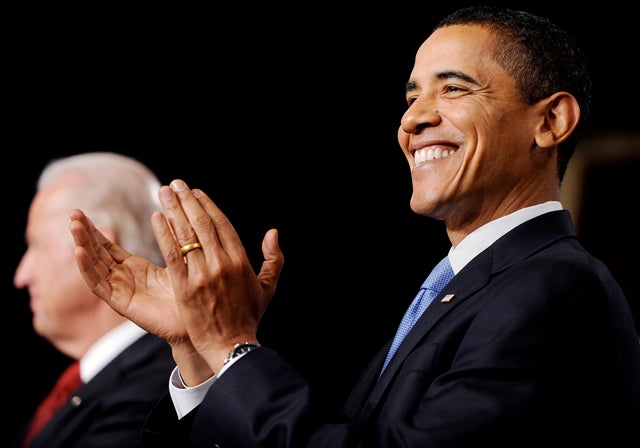President Obama’s has repeatedly promised to rein in the influence industry’s role in federal policymaking and access to top federal officials. But the president’s actions consistently belie his rhetoric, as a recent review of White House visitor logs demonstrates.
“[T]he lobbying industry Obama has vowed to constrain is a regular presence at 1600 Pennsylvania Ave,” the Washington Post reported on Monday. Visitor logs “suggest that lobbyists with personal connections to the White House enjoy the easiest access,” the Post adds.
The Daily Signal depends on the support of readers like you. Donate now
The White House has consistently worked to circumvent its own pledge to exclude lobbyists from federal decision-making. In order to skirt visitor logs, for instance, staff began holding meetings with lobbyists at a coffee shop across the street. While the president pledged not to employ any lobbyists, White House staff includes at least fifty former lobbyists and government relations executives.
Meanwhile, the Democratic National Committee has found loopholes in its own pledge to finance the party’s Charlotte, NC convention without money from lobbyists. According to the Los Angeles Times, “organizers have found ways to skirt the rules and give corporations and lobbyists a presence at the nominating convention.
As the Post notes, President Obama’s actions stand in stark contrast to his populist rhetoric.
More than any president before him, Obama pledged to change the political culture that has fueled the influence of lobbyists. He barred recent lobbyists from joining his administration and banned them from advisory boards throughout the executive branch. The president went so far as to forbid what had been staples of political interaction — federal employees could no longer accept free admission to receptions and conferences sponsored by lobbying groups.
While lobbyists have a legitimate role in policymaking – they are agents of Americans’ First Amendment right to redress, after all – the administration appears to be granting disproportionate access to its political allies.
The White House visitor records make it clear that Obama’s senior officials are granting that access to some of K Street’s most influential representatives. In many cases, those lobbyists have long-standing connections to the president or his aides. Republican lobbyists coming to visit are rare, while Democratic lobbyists are common, whether they are representing corporate clients or liberal causes.
The Post offers a number of examples to back up its observations.































